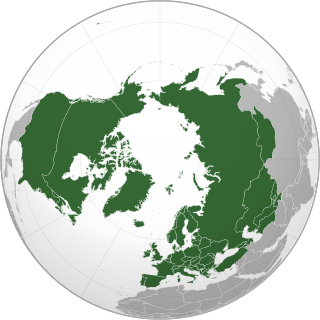
The Organization for Security and Co-operation in Europe (OSCE) is the world's largest security-oriented intergovernmental organization. Its mandate includes issues such as arms control, promotion of human rights, freedom of the press, and fair elections. It employs around 3,460 people, mostly in its field operations but also in its secretariat in Vienna, Austria and its institutions. It has its origins in the 1975 Conference on Security and Co-operation in Europe (CSCE) held in Helsinki, Finland.

Human Rights Watch (HRW) is an international non-governmental organization, headquartered in New York City, that conducts research and advocacy on human rights. The group pressures some governments, policy makers and human rights abusers to denounce abuse and respect human rights, and the group often works on behalf of refugees, children, migrants and political prisoners.

Non-governmental organizations, nongovernmental organizations, or nongovernment organizations, commonly referred to as NGOs, are usually non-profit and sometimes international organizations independent of governments and international governmental organizations that are active in humanitarian, educational, health care, public policy, social, human rights, environmental, and other areas to effect changes according to their objectives. They are thus a subgroup of all organizations founded by citizens, which include clubs and other associations that provide services, benefits, and premises only to members. Sometimes the term is used as a synonym of "civil society organization" to refer to any association founded by citizens, but this is not how the term is normally used in the media or everyday language, as recorded by major dictionaries. The explanation of the term by NGO.org is ambivalent. It first says an NGO is any non-profit, voluntary citizens' group which is organized on a local, national or international level, but then goes on to restrict the meaning in the sense used by most English speakers and the media: Task-oriented and driven by people with a common interest, NGOs perform a variety of service and humanitarian functions, bring citizen concerns to Governments, advocate and monitor policies and encourage political participation through provision of information.

Humanitarianism is an active belief in the value of human life, whereby humans practice benevolent treatment and provide assistance to other humans, in order to better humanity for moral, altruistic and logical reasons. It is the philosophical belief in movement toward the improvement of the human race in a variety of areas, used to describe a wide number of activities relating specifically to human welfare. A practitioner is known as a humanitarian.
Electronic Privacy Information Center (EPIC) is an independent non-profit research center in Washington, D.C. EPIC's mission is to focus public attention on emerging privacy and related human rights issues. EPIC works to protect privacy, freedom of expression, and democratic values, and to promote the Public Voice in decisions concerning the future of the Internet.
International human rights law (IHRL) is the body of international law designed to promote human rights on social, regional, and domestic levels. As a form of international law, international human rights law are primarily made up of treaties, agreements between sovereign states intended to have binding legal effect between the parties that have agreed to them; and customary international law. Other international human rights instruments, while not legally binding, contribute to the implementation, understanding and development of international human rights law and have been recognized as a source of political obligation.

The International Commission of Jurists (ICJ) is an international human rights non-governmental organization.
International humanitarian law (IHL) is the law that regulates the conduct of war. It is that branch of international law which seeks to limit the effects of armed conflict by protecting persons who are not participating in hostilities, and by restricting and regulating the means and methods of warfare available to combatants.
Refugee law is the branch of international law which deals with the rights and protection of refugees. There are differences of opinion among international law scholars as to the relationship between refugee law and international human rights law or humanitarian law. The discussion forms part of a larger discussion on fragmentation of international law. While some scholars conceive each branch as a self-contained regime distinct from other branches, others regard the three branches as forming a larger normative system that seeks to protect the rights of all human beings at all time. The proponents of the latter conception view this holistic regime as including norms only applicable to certain situations such as armed conflict and military occupation (IHL) or to certain groups of people including refugees, children, and prisoners of war.
Humanitarian Intervention has been defined as a state's use of military force against another state, with publicly stating its goal is to end human rights violations in that state." This definition may be too narrow as it precludes non-military forms of intervention such as humanitarian aid and international sanctions. On this broader understanding, "Humanitarian intervention should be understood to encompass… non-forcible methods, namely intervention undertaken without military force to alleviate mass human suffering within sovereign borders."

Signed into U.S. law by President George W. Bush on October 18, 2004, the North Korean Human Rights Act is intended to promote human rights and freedom to North Korean refugees by:
- Providing humanitarian assistance to North Koreans inside North Korea;
- Providing grants to private, non-profit organizations to promote human rights, democracy, rule of law, and the development of a market economy in North Korea;
- Increasing the availability of information inside North Korea;
- Providing humanitarian or legal assistance to North Koreans who have fled North Korea.
Disabled Peoples' International (DPI) is a cross disability, consumer controlled international non-governmental organization (INGO) headquartered in Ottawa, Ontario, Canada and with regional offices in Asia-Pacific, the Middle East, Europe, Africa, Latin America, and North America and the Caribbean. DPI is a network of national organizations or assemblies of disabled people, established in 1981 by Singaporean disability rights activist, Ron Chandran-Dudley, to promote the human rights of disabled people through full participation, equalization of opportunity and development. DPI assists organizations in over 152 nations with the day to day issues of helping disabled people. They also host assemblies and symposiums across the world with their different national branches.

The Fund for Peace is a US non-profit, non-governmental research and educational institution. Founded in 1957, FFP "works to prevent violent conflict and promote sustainable security."

Uzbek–American relations formally began when the United States recognized the independence of Uzbekistan on December 25, 1991, and opened an embassy in Tashkent in March 1992. U.S.-Uzbekistan relations developed slowly and reached a peak following the U.S. decision to invade Afghanistan following the September 11, 2001 attacks. Relations cooled significantly following the "color revolutions" in the former Soviet republics of Georgia, Ukraine, and Kyrgyzstan in 2003-2005, and the Government of Uzbekistan sought to limit the influence of U.S. and other foreign non-governmental organizations (NGOs) working on civil society, political reform, and human rights inside the country.
LGBT rights organizations are civil rights, health, and community organizations created and existing to further the civil and human rights and health of sexual minorities and to improve the LGBT community.
American Jewish World Service (AJWS) is a nonprofit, international development and human rights organization that supports community-based organizations in 19 countries in the developing world and works to educate the American Jewish community about global justice. It is the first and only Jewish organization dedicated solely to ending poverty and promoting human rights in the developing world. Its headquarters are in New York City. AJWS has received a Four Star rating from Charity Navigator since 2002.

Eric Paul Schwartz is the current president of Refugees International and former United States Assistant Secretary of State for Population, Refugees, and Migration.
Advocates for Informed Choice, dba interACT or interACT Advocates for Intersex Youth, is a 501(c)(3) nonprofit organization using innovative strategies to advocate for the legal and human rights of children born with intersex traits. The organization was founded in 2006 and formally incorporated on April 12, 2010.

Agnès Callamard is the Special Rapporteur on extrajudicial, summary or arbitrary executions at the Office of the United Nations High Commissioner for Human Rights (OHCHR). She is also the Director of Columbia University's Global Freedom of Expression project.











